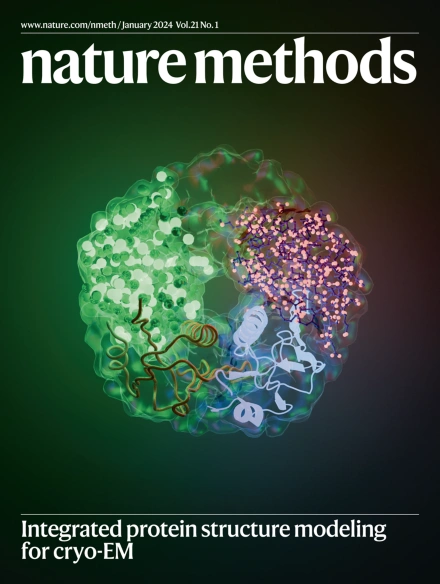A benchmarked, high-efficiency prime editing platform for multiplexed dropout screening
IF 36.1
1区 生物学
Q1 BIOCHEMICAL RESEARCH METHODS
引用次数: 0
Abstract
Prime editing installs precise edits into the genome with minimal unwanted byproducts, but low and variable editing efficiencies have complicated application of the approach to high-throughput functional genomics. Here we assembled a prime editing platform capable of high-efficiency substitution editing suitable for functional interrogation of small genetic variants. We benchmarked this platform for pooled, loss-of-function screening using a library of ~240,000 engineered prime editing guide RNAs (epegRNAs) targeting ~17,000 codons with 1–3 bp substitutions. Comparing the abundance of these epegRNAs across screen samples identified negative selection phenotypes for 7,996 nonsense mutations targeted to 1,149 essential genes and for synonymous mutations that disrupted splice site motifs at 3′ exon boundaries. Rigorous evaluation of codon-matched controls demonstrated that these phenotypes were highly specific to the intended edit. Altogether, we established a prime editing approach for multiplexed, functional characterization of genetic variants with simple readouts. This work establishes a prime editing platform for high-throughput interrogation of small genetic variants (up to tens of thousands) with negative selection phenotypes.

用于复用漏检筛选的基准高效素材编辑平台。
基质编辑能在基因组中进行精确的编辑,并将不需要的副产品降至最低,但编辑效率低且不稳定,这使这种方法在高通量功能基因组学中的应用变得复杂。在这里,我们组装了一个能进行高效置换编辑的质粒编辑平台,适用于小基因变异的功能检测。我们利用一个由大约 24 万条工程化的质粒编辑向导 RNA(epegRNA)组成的文库,针对大约 1.7 万个 1-3 bp 的密码子进行了功能缺失筛选,并对该平台进行了基准测试。通过比较这些 epegRNA 在不同筛选样本中的丰度,发现了针对 1,149 个重要基因的 7,996 个无义突变以及破坏 3' 外显子边界剪接位点基团的同义突变的负选择表型。对密码子匹配对照的严格评估表明,这些表型对预期编辑具有高度特异性。总之,我们建立了一种主要的编辑方法,可以通过简单的读数对基因变异进行多重功能表征。
本文章由计算机程序翻译,如有差异,请以英文原文为准。
求助全文
约1分钟内获得全文
求助全文
来源期刊

Nature Methods
生物-生化研究方法
CiteScore
58.70
自引率
1.70%
发文量
326
审稿时长
1 months
期刊介绍:
Nature Methods is a monthly journal that focuses on publishing innovative methods and substantial enhancements to fundamental life sciences research techniques. Geared towards a diverse, interdisciplinary readership of researchers in academia and industry engaged in laboratory work, the journal offers new tools for research and emphasizes the immediate practical significance of the featured work. It publishes primary research papers and reviews recent technical and methodological advancements, with a particular interest in primary methods papers relevant to the biological and biomedical sciences. This includes methods rooted in chemistry with practical applications for studying biological problems.
 求助内容:
求助内容: 应助结果提醒方式:
应助结果提醒方式:


